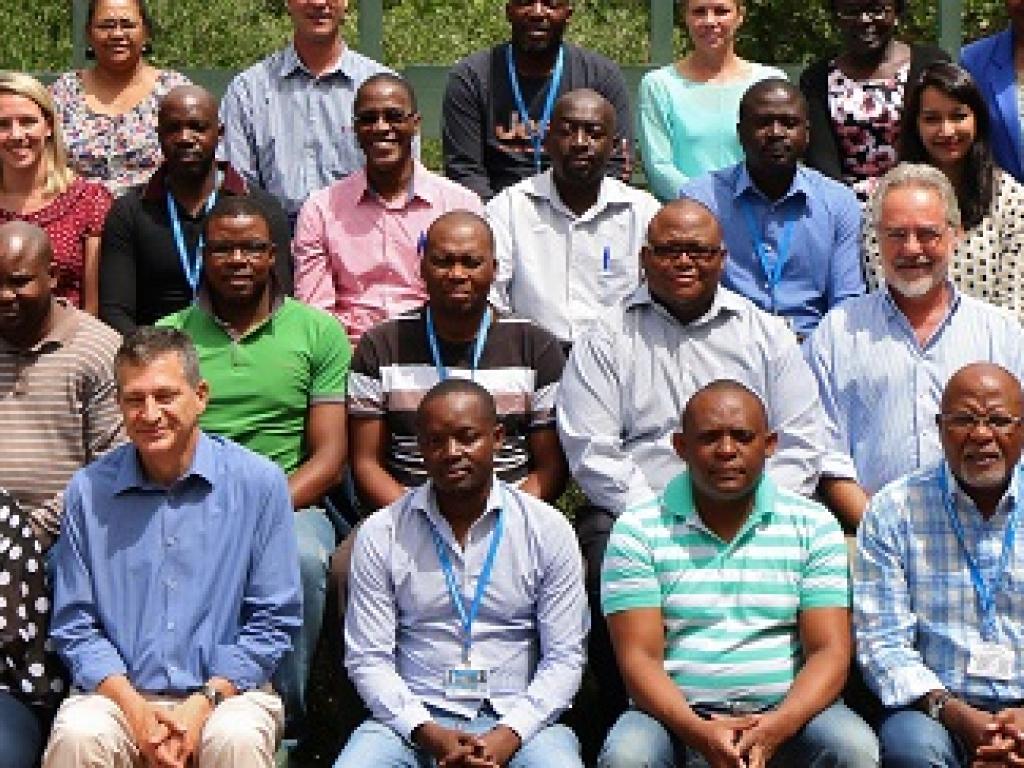GSDPP invests further in emerging African leadership

GSDPP has become an integral role player in strengthening the capacity of public officials in South Africa, and in broadening the skills of policymakers across the continent, providing academic training for top graduates at the cusp of their professional careers, as well as executive training and discussion forums for senior public officials engaged in public policy.
Two of the school’s four main offerings, the Master of Philosophy (MPhil) in Development Policy and Practice Programme and the Building Bridges’ Young Leaders Programme, are gearing up to welcome new cohorts for 2017.
Young Leaders Programme 2017
The Building Bridges Young Leaders Programme is a two-week residential leadership development programme bringing together the most promising emerging public leaders from across Africa to engage on key challenges often perceived as complex and intractable, or side-stepped due to cultural and political sensitivity.
Building Bridges Programme Assistant, Mabel Sithole, says this year 26 candidates are expected from six African countries including Ghana, South Africa, Tanzania, and Zambia, with the new addition of delegates from Senegal and Ethiopia.
Sithole says they have had Senegalese candidates participate in other programmes before, but that the school is excited to include the Francophone/Anglophone connection in the Young Leaders Programme.
“We have people [this year] in the public and private sectors, and civil society – both ranging from international organisations to a community based focus as well. We have quite a nice range also in terms of their professions, from legal experts to women’s rights experts, to health experts, to people from the banking sector, engineers, and journalists.
“Just from that spread you can see we always like to have a mix in the room that allows for that connection to be made between people who normally would not be sitting in the same room together,” says Sithole.
Sithole explains that one of the aims of the programme is to see alliances being built, or what they call ‘virtuous circles of trust’, and for collaborations to be established, which is why they are so happy with the mix this year.
One of the biggest outtakes from the 2016 cohort for the faculty was the chemistry in the room because every year is different and each of the candidates are unique in their experience and what they view as opportunities for change.
The programme is transformational for participants. Many of the 2016 cohort expressed that they had not seen themselves as leaders before attending the programme. “Being in the company of like-minded young people, also working to see change in Africa, motivated them and encouraged them so much. It actually showed them that they can make a difference and that they have been making a difference,” says Sithole.
Sithole adds that the chemistry and connection allows students to later pursue certain avenues together as a group, because they know that outside of their country, or outside of their own sphere of influence, they have a support network.
“To see what they achieved over the last year, it’s life changing for any of us who comes into contact with that,” she says.
MPhil in Development Policy and Practice 2017
The School’s MPhil in Development Policy and Practice develops potential in strategic public leadership at the cutting edge of global knowledge and experience.
The GSDPP actively aims for 50% African representation from beyond South Africa and brings internationally-recognised faculty to the classroom at senior levels of policy-making and implementation.
“We are expecting 21 students this year, with an almost 50/50 split between male and female candidates coming from South Africa, Uganda, Zambia, Tanzania, Zimbabwe, Botswana, Malawi and one student from Italy,” reports Elvina Moosa, MPhil Programme Manager.
“We want the 50% from Africa for the exchange – the interaction and the networking amongst students. We have a fair spread of students with different knowledge bases coming from different environments for 2017,” says Moosa.
The goal of the MPhil is to enhance student’s capabilities as strategic leaders in the public sector, civil society or international organisations, by equipping them with a new set of skills and allowing them to tap into the GSDPP’s powerful network.
“These are students already established in their careers, in mid- to upper-level positions, so expectations for completing the course would be improved job performance and promotion within their organisations,” says Moosa.
The 2017 intake will start their first two-week intensive block on 10 February 2017, as the 2016 class prepares for their third semester and the 2015 students complete dissertations in order to graduate in 2017. See student biographies here: http://www.gsdpp.uct.ac.za/student-biographies
